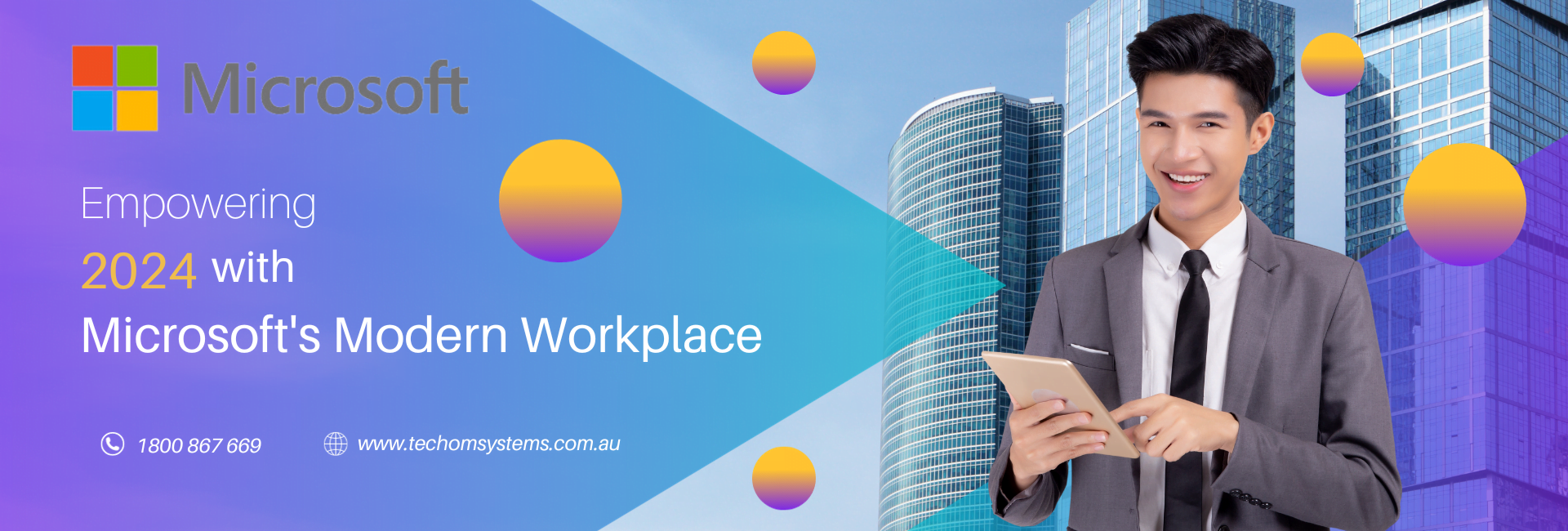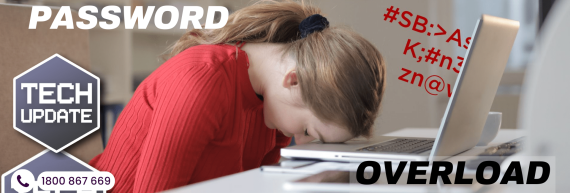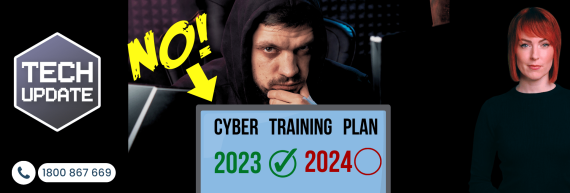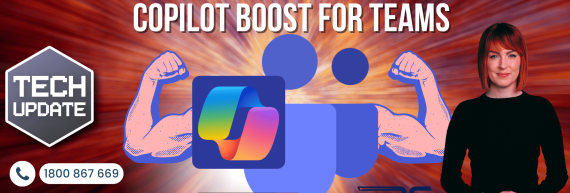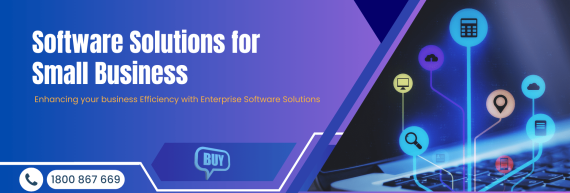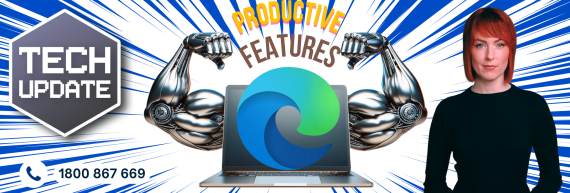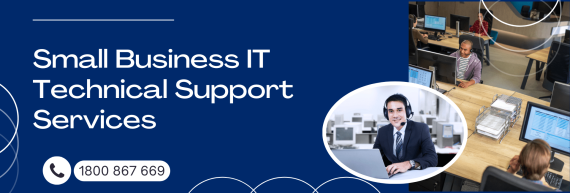Step into the future with our comprehensive exploration of the Microsoft Modern Workplace in 2024—a groundbreaking ecosystem meticulously crafted by the technology giant to reshape the landscape of business operations and empower the workforce. In this age of swift digital evolution, organizations globally are proactively pursuing innovative solutions to elevate productivity, collaboration, and efficiency. Microsoft stands as a beacon, addressing these pressing needs with state-of-the-art solutions that keep pace with and redefine the essence of traditional office settings and workstations in 2024.
Microsoft Modern Workplace’s core lies in Microsoft 365, a comprehensive suite that seamlessly combines familiar Office applications with innovative cloud-based features such as Microsoft Teams, SharePoint, and OneDrive. These tools collectively create a unified workspace, enabling employees to communicate, create, and share seamlessly, regardless of their location or device.
In addition to Microsoft 365, the Modern Workplace emphasizes the significance of cloud computing through Azure, Microsoft’s robust cloud platform. Azure provides a scalable and secure infrastructure, allowing businesses to develop, deploy, and manage applications efficiently. The integration with Microsoft 365 ensures accessible and protected data, instilling confidence in businesses to embrace digital transformation.
Our journey into the Modern Workplace explores cutting-edge technologies, such as artificial intelligence and machine learning, enhancing productivity through intelligent chatbots and insightful data analytics.
A dedicated guide section addressing cybersecurity concerns outlines robust measures against threats and unauthorized access. The exploration culminates in recognizing the flexibility and inclusivity fostered by the Modern Workplace. With remote work on the rise, Microsoft ensures engagement for individuals of diverse abilities, creating inclusive workspaces.
“Exploring the Microsoft Modern Workplace: A Comprehensive Guide to its Powerful Inclusions” offers a holistic view, guiding business leaders and employees toward transformative solutions and heightened productivity in the evolving work landscape.
What’s included in a Microsoft Modern Workplace?
The Microsoft Modern Workplace is a comprehensive ecosystem of tools, applications, and services designed to transform the way businesses operate and empower their employees. At its core, the Microsoft Modern Workplace centres around Microsoft 365, combining familiar Office applications with cloud-based services to enable seamless collaboration and productivity.
Microsoft 365 Suite
The Microsoft Modern Workplace includes the renowned Microsoft Office suite, including Word, Excel, PowerPoint, and Outlook. These applications form the foundation for creating and editing documents, spreadsheets, presentations, and emails. Cloud integration facilitates file access from anywhere, promoting efficient collaboration and eliminating version control issues.
Microsoft Teams
A central component of the Modern Workplace, Microsoft Teams is a powerful communication and collaboration hub. It enables real-time messaging, video conferencing, file sharing, and integration with other Microsoft 365 apps, fostering teamwork and simplifying project management.
SharePoint Online
As a versatile platform for content management and collaboration, SharePoint Online allows teams to create websites, share documents, manage workflows, and store data securely, facilitating smooth information exchange within the organization.
OneDrive for Business
Providing each user with personal cloud storage, OneDrive ensures files are easily accessible and safely backed up. It promotes seamless synchronization across devices, enhancing mobility and allowing users to work on documents offline with automatic updates when online.
Azure Active Directory
An essential component, Azure Active Directory (Azure AD) enables secure access to Microsoft 365 resources, serving as the identity and access management platform to protect against unauthorized access and ensure a smooth, secure sign-in experience.
Enterprise Mobility + Security (EMS)
Incorporating EMS, a suite of security and management tools, the Modern Workplace ensures features like mobile device management (MDM), mobile application management (MAM), conditional access policies, and advanced security capabilities to safeguard company data and devices.
Power Platform
Encompassing Power Apps, Power Automate, and Power BI, the Microsoft Power Platform empowers users to create custom applications, automate workflows, and analyze data insights without extensive coding knowledge.
The Microsoft Modern Workplace offers a holistic approach to modernizing business operations, fostering collaboration and promoting productivity. By integrating powerful cloud-based services, communication tools, and security features, Microsoft’s suite of offerings enables organizations to adapt to the ever-changing digital world while providing a secure and seamless work environment for their employees.
What is a modern workplace?
The modern workplace represents a significant shift in the way businesses operate and employees work. It goes beyond traditional office settings, embracing technology, flexibility, and a new mindset to optimize productivity, collaboration, and employee well-being.
Key Attributes of a Modern Workplace:
- Technology Integration: At the heart of the modern workplace is technology, encompassing a range of digital tools and solutions that streamline work processes, enhance communication, and automate tasks.
- Remote and Flexible Work: Recognizing that work can be effectively done from anywhere, the modern workplace embraces remote work and flexible arrangements, improving work-life balance and attracting diverse talent.
- Collaboration and Communication: Seamless and efficient collaboration is a hallmark of the modern workplace. Communication tools enable teams to connect and collaborate in real-time, regardless of physical location.
- Employee-Centric Approach: Prioritizing employee well-being and satisfaction, the modern workplace offers wellness programs, flexible work hours, and opportunities for skill development.
- Data-Driven Decision Making: Leveraging analytics and business intelligence tools, the modern workplace makes informed decisions based on data insights, identifying trends, measuring performance, and optimizing processes.
- Emphasis on Cybersecurity: With heavy reliance on technology, cybersecurity is paramount. Robust security measures protect sensitive data, prevent cyber threats, and maintain data privacy and compliance.
- Inclusivity and Diversity: Valuing inclusivity and diversity, the modern workplace fosters an environment where individuals from various backgrounds, cultures, and perspectives can thrive, driving creativity and innovation.
The modern workplace is a dynamic and transformative concept that embraces technology, flexibility, and employee-centric values. By combining innovative tools, remote work opportunities, and a focus on collaboration and employee well-being, organizations can create a work environment that adapts to today’s workforce’s changing needs and expectations.
How does the Microsoft Modern Workplace facilitate automation?
The Microsoft Modern Workplace facilitates automation through various tools and services that streamline processes, improve efficiency, and reduce manual tasks. Automation is a key component of the modern workplace, enabling employees to focus on high-value activities while repetitive tasks are handled seamlessly.
Automation Tools within the Modern Workplace:
- Power Automate: Formerly known as Microsoft Flow, Power Automate is a robust automation platform allowing users to create automated workflows across various applications and services. With a user-friendly interface, routine tasks like email notifications and data synchronization can be automated without extensive coding knowledge.
- Microsoft Teams Integration: Automation is deeply integrated into Microsoft Teams, the collaboration hub of the Modern Workplace. Teams bots and integrations enable users to automate repetitive tasks directly within the platform, enhancing efficiency.
- Power Apps: Empowering non-developers, Power Apps allows the creation of custom applications with low-code/no-code tools. This lets employees quickly automate data entry, approvals, and other processes, reducing dependency on traditional software development cycles.
- Process Automation with SharePoint and OneDrive: SharePoint and OneDrive offer process automation capabilities through workflows. Automated processes for document approvals, content publishing, and version control ensure smooth content flow within the organization.
- Data Integration with Power BI: Power BI integrates with various data sources, allowing users to automate data refreshes and report generation. This ensures stakeholders have access to real-time data, making data-driven decision-making more efficient.
By leveraging these automation tools, the Microsoft Modern Workplace empowers organizations to optimize workflows, boost productivity, and drive business growth by reducing human error, saving time, and allowing employees to focus on strategic and creative tasks.
How does the Microsoft Modern Workplace promote collaboration?
The Microsoft Modern Workplace is designed to promote seamless collaboration among teams, departments, and external stakeholders. By integrating a wide range of collaborative tools and services, Microsoft empowers employees to work together efficiently and effectively.
Collaboration Features within the Modern Workplace:
- Microsoft Teams: At the core of collaboration is Microsoft Teams, serving as a central hub for communication. It provides chat, audio and video calling, virtual meetings, and integration with other Microsoft 365 apps, fostering teamwork and simplifying project management.
- Real-time Co-authoring: Microsoft 365 applications support real-time co-authoring, allowing multiple users to work on the same document simultaneously. This fosters collaborative editing, reduces version conflicts, and improves overall productivity.
- SharePoint Online: As a collaborative content management platform, SharePoint Online enables teams to create and share websites, document libraries, and lists. It facilitates version control, document approvals, workflow management, and streamlining collaborative efforts.
- OneDrive for Business: While providing individual cloud storage, OneDrive promotes collaboration through secure file sharing. Employees can share files and folders with various access levels, ensuring smooth collaboration on shared documents.
- Coordinated Meetings and Events: Microsoft Modern Workplace includes scheduling and calendar features, facilitating coordinated meetings and events. Users can view colleagues’ availability, send invitations, and schedule virtual meetings seamlessly.
- Mobile Accessibility: Designed to be accessible from various devices, including smartphones and tablets, the Modern Workplace enables on-the-go collaboration. Employees can stay connected and engaged with their teams, regardless of their location.
By leveraging these collaborative tools and features, the Microsoft Modern Workplace breaks down communication barriers, enables real-time information sharing, and promotes teamwork. Whether working on documents together, holding virtual meetings, or coordinating projects, the Modern Workplace empowers organizations to collaborate more efficiently and achieve better outcomes.
How secure is the Microsoft Modern Workplace?
Security is a top priority for the Microsoft Modern Workplace, and the platform employs a multi-layered approach to protect data, applications, and user identities. Microsoft invests heavily in advanced security technologies, continuously monitoring and updating its systems to stay ahead of evolving threats.
Key Aspects of Security in the Modern Workplace:
- Identity and Access Management: Azure Active Directory (Azure AD) serves as the identity and access management platform. It ensures secure sign-in experiences through multi-factor authentication and conditional access policies, detecting and preventing suspicious sign-in attempts with machine learning algorithms.
- Data Protection and Encryption: Microsoft ensures data protection by encrypting data at rest and in transit. Features like Data Loss Prevention (DLP) in Microsoft 365 allow organizations to control sensitive data and prevent accidental sharing. Advanced Threat Protection (ATP) services scan emails and documents for malicious content.
- Cloud Security: Azure, Microsoft’s cloud platform, implements rigorous security protocols to protect customer data. Complying with industry standards and regulations, Azure offers additional security certifications for specific regions and industries. AI-driven threat detection and response mechanisms identify and mitigate potential threats in real-time.
- Compliance and Trust: Microsoft is committed to transparency, giving customers control over their data. Various compliance certifications, such as GDPR, HIPAA, and ISO, ensure adherence to industry-specific security standards. Microsoft publishes detailed information about its security and privacy practices, fostering customer trust and confidence.
The Microsoft Modern Workplace is equipped with a comprehensive and sophisticated security framework to safeguard critical assets and sensitive data. Leveraging cutting-edge technologies, adhering to strict compliance standards, and ensuring transparency, Microsoft demonstrates its commitment to creating a secure and trusted environment for its users and customers.
Why should businesses consider adopting a Modern Workplace?
Adopting a modern workplace is not just an option—it has become necessary for businesses to stay competitive and thrive in today’s digital landscape. The benefits of embracing a modern workplace can significantly impact an organization’s productivity, collaboration, and overall success.
Compelling Reasons to Adopt a Modern Workplace:
- Enhanced Productivity: Streamlining workflows and automating tasks through a modern workplace enables employees to focus on high-value activities. Integrated collaboration tools and cloud-based applications promote efficient communication and real-time co-authoring of documents.
- Flexibility and Remote Work: The modern workplace supports flexible work arrangements and remote capabilities, catering to the evolving needs of the workforce. This flexibility improves work-life balance, attracts diverse talent, and enables teams to stay connected regardless of physical location.
- Improved Collaboration and Communication: Integrated communication tools facilitate seamless collaboration, idea sharing, and real-time problem-solving. The ease of sharing documents, conducting virtual meetings, and centralized access to information strengthens teamwork and decision-making processes.
- Data Security and Compliance: With robust security measures like Azure Active Directory, data encryption, and multi-factor authentication, the modern workplace ensures the protection of sensitive information. Compliance with industry-specific regulations becomes more manageable with the platform’s security frameworks.
- Agility and Innovation: A modern workplace encourages agility and innovation by adopting cloud-based services, advanced analytics, and custom application development. Organizations can respond rapidly to changing market dynamics and stay ahead of the competition.
- Cost Savings: Embracing a modern workplace often leads to cost savings. Cloud-based solutions eliminate the need for extensive on-premises infrastructure and maintenance costs. Automation of manual tasks reduces operational expenses while increasing efficiency.
Adopting a modern workplace is a strategic investment that paves the way for sustained success and future-proofing businesses. By embracing technology, enabling flexibility, promoting collaboration, ensuring data security, and fostering innovation, organizations can create a work environment that empowers employees and accelerates business growth.
Expect a Smooth Evolution with TECHOM Systems
Modern Workplace Services offered by TECHOM Systems encompass a range of cloud-based tools, collaboration platforms, and security solutions. These services empower organizations to enhance productivity, communication, and flexibility while ensuring data protection and compliance.
If you are interested in discussing a modern workplace, reach out to TECHOM Systems‘ experts today:
- Phone: 1800 TOSNOW / 1800 867 669
- Email: hello@techomsystems.com.au
Transform your journey to a futuristic workplace effortlessly with TECHOM Systems’ cutting-edge expertise and innovative solutions tailored for 2024. Schedule a consultation with our experts today to seamlessly embrace the future of work.

